Living in Panama: the plusses and minuses.
Living in Panama, the worlds number one retirement destination. Most complete information on the ‘Net with which to make your decision.
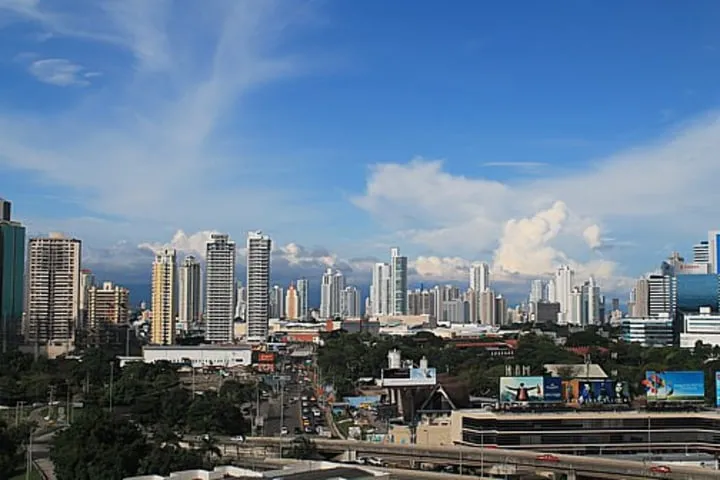
Living in Panama, the worlds number one retirement destination. Most complete information on the ‘Net with which to make your decision.

Panama does have its problems and shortcomings, and we never use the term “paradise” as a description. The question you must be asking is: would this be a good place to retire or move to? With a few caveats the simple answer is - yes. After living here for FIFTEEN years both in the mountains and on the beach, we still believe that Panama is the best retirement destination in the world - bar none.
It’s affordable - it’s warm - the people are friendly.
Our advice has always been: First, Come here for a long visit. Read everything you can, see as much as you can - and then make an informed decision.
Living in Panama is not like living in the U.S. Canada, Germany or Britain. First and foremost, Panama does not have the same level of “Law & Order” that you expect in your native country. Petty crime and break-ins are high. You may call the police after a break-in and find that they refuse to attend. You WILL need iron bars on all your doors and windows - if you don’t do this then the chances of being robbed are almost 100%. You may find that your tropical paradise will be in fact “A paradise behind bars.”
Sorry to start with a pile of negatives- but most people would prefer we are straight and honest about life here.
However, when you first fly into and drive through Panama City, you will be pleasantly surprised. Most first time visitors are open-mouthed at the amount of modern high rises and skyscrapers they see. The wide four lane roads, the familiar fast food restaurants, the spacious air-conditioned shopping malls, a comment we here frequently from people is,” Wow! This is definitely not what I thought a third world country would look like.”
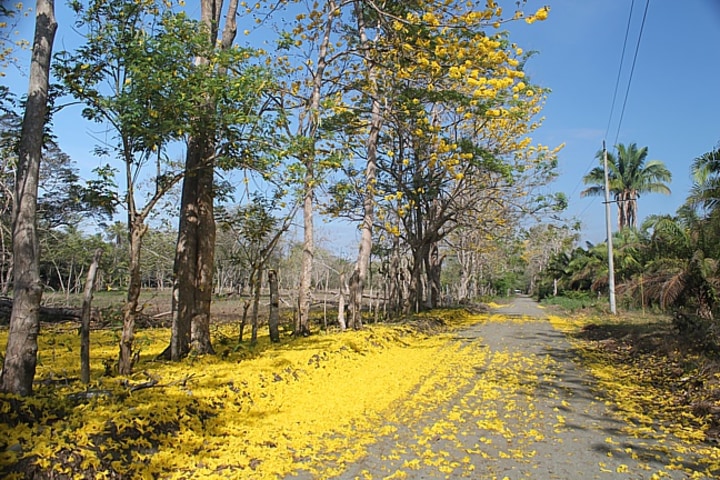 Pictured above a country lane in PUERTO ARMUELLES drenched in the blossoms from a GUAYACAN tree.
Pictured above a country lane in PUERTO ARMUELLES drenched in the blossoms from a GUAYACAN tree.
We believe that the best part of Panama lies, not in the big city but in the clean, quiet countryside of Panama’s Western province of CHIRQUI.
Trust me, Panama city is vibrant, great restaurants and night life but the traffic and the noise will drive you mad.
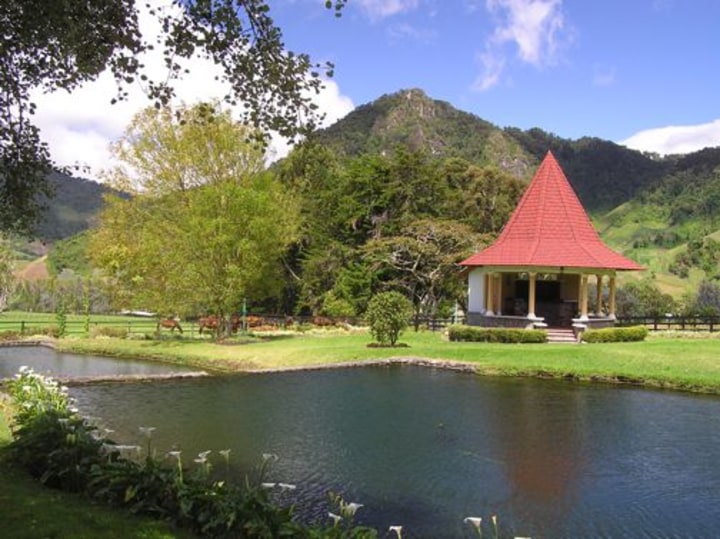
Most people arrive in Panama City and are wowed by its modern hi-rises and “first world” appearance. Great! Enjoy seeing the canal and the historic parts of the city and then splurge on its wide variety of restaurants. They also have more huge, modern air conditioned malls than you can shake a credit card at. Then after the “tourist” part of the trip dies down a bit you might ask yourself “what about the rest of the country? Where would be a good and affordable place to live?”
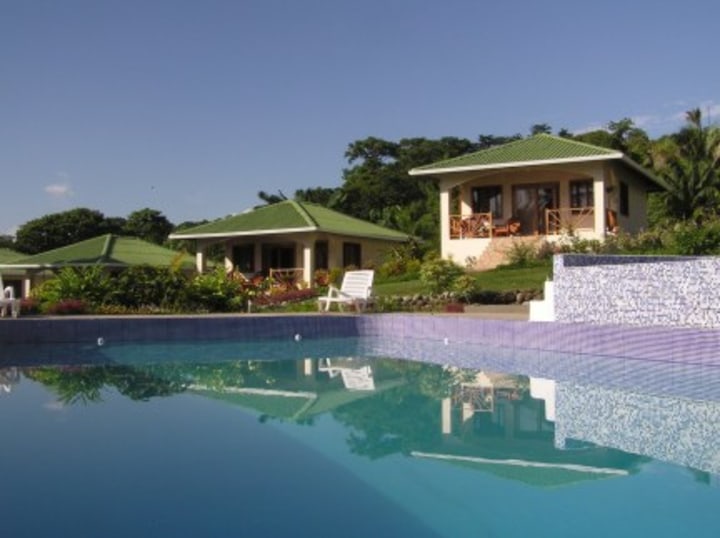
Ok, we are biased, we love Panama’s western most province of Chiriqui. Yes it does have beautiful beaches, cool eternal spring climate in its mountains, lakes, waterfalls and the big city of David has first world shopping and medical care. But I did say we were biased. And before we go any further - NO! I do not sell real estate.
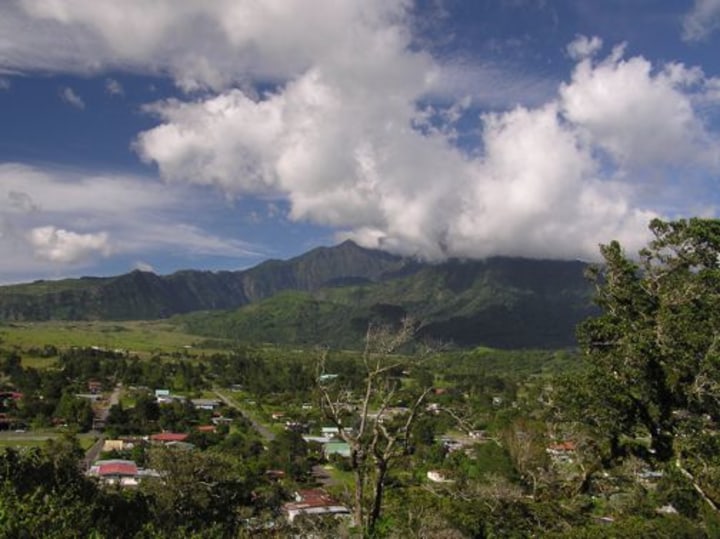 Pictured above is the town of Volcan.
Pictured above is the town of Volcan.
Nestled against Panama’s highest peak-the Baru Volcano (11,400 feet) From this eternal spring climate the big city of David is 45 minutes, the beaches (oh! there are lots of them by the way)We have 14 supermarkets (don’t ask me why so many) 4 hardware stores and 3 banks and a credit union.
We have just opened a 30 bed hospital. The law of Panama says that even as a tourist you are entitled to medical care. We also have over 30 places to eat. Why do I plug Volcan? Well the government spends oodles on the big cities and tourist traps but very little on the “good” part of Panama. All we ask is; “come and see us” and then make a decision.
Volcan has the best affordable and desirable real estate in Panama. Our climate is wonderful and with the proposed new city centre for Volcan I make the statement that:
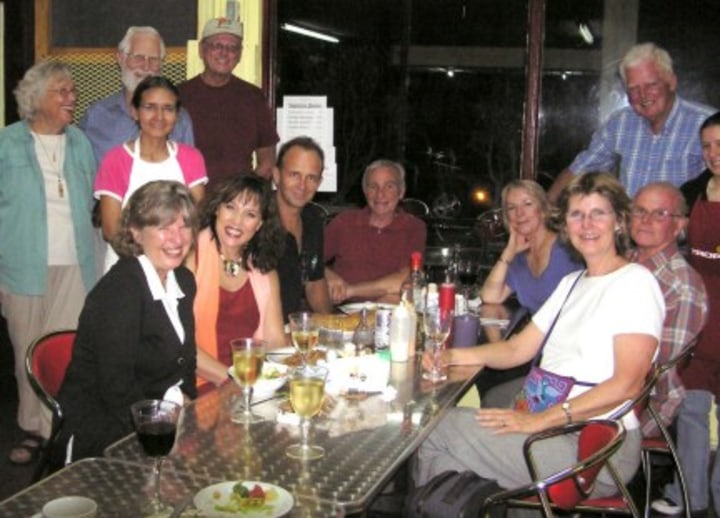
This is a young country and, like any other developing country, living in Panama can have its frustrations. To enjoy this amazing place to its fullest, you will need a little mental discipline. Avoid even the thought that “back home we do it in such-and-such a way.” Not only will you become frustrated with some of the comparisons but if you voice them, you may offend Panamanians who are justifiably proud of their young country but also aware that they do not yet have the same standards that are enjoyed in some of the more developed countries.
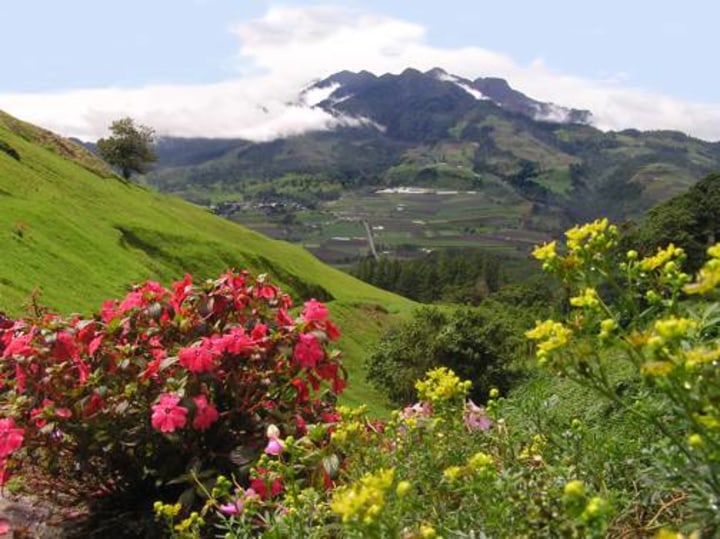
Think of living in Panama, in part, as an adventure. Power may (and probably will) shut off unexpectedly more often than it does in your native land. (If you use a computer, get battery backup power that will allow you time to close all programs when the power goes off. The cost is just a few hundred dollars.)
Pictures below the Macho de Monte Canyon just south of Volcan. Chiriqui has dozens of canyons, waterfalls and natural hot springs. Most of these places are off the tourist map so true adventures could await you.
Did I mention there are legends of lost Spanish gold mines?
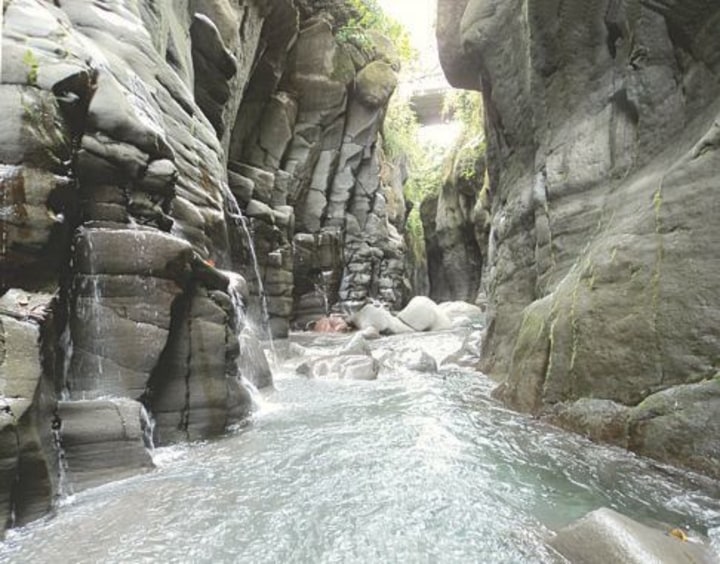
Those living in Panama City are used to the water being shut off, often unexpectedly, sometimes for several hours. This is not Chicago or Houston or Toronto.
For all of the occasional nuisances, living in Panama has more compensations than it has pitfalls.
There’s a fair bit of rain here but, unlike snow, it doesn’t have to be shoveled. And unlike some places, the sun shines almost every day. Only occasionally is there daylong rain. Humidity? Yes, it is more humid at or near sea level than in some places, but it is something you get used to. There are also communities that the American Association of Retired Persons and others list as having among the best climates in the world. In fact, the small community of Boquete is listed as the top retirement location in all of the Americas and one of the top five places in the world in which to retire. However if you travel slightly west of Boquete to the small mountain town of Volcan, you will find just about all that Boquete offers - but at a much more affordable price.
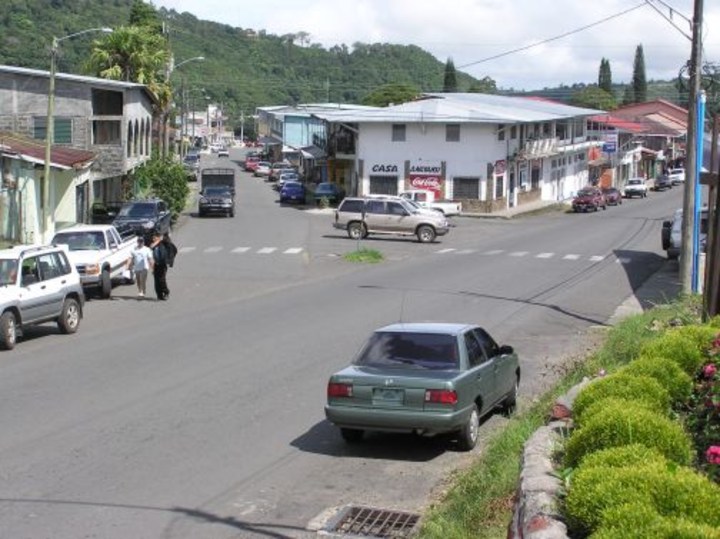
Volcan and Boquete, Panama, which we will explore elsewhere on this site, have elevations of 4,450 (Volcan) and 3,500 (Boquete). They are both in the shadow of Panama’s highest (11,400 feet) peak, the Baru Volcano. This mountainous area known for its fruit, coffee, flowers and vegetables which are exported to many parts of the world. Cooler here and less humid, it is the choice for many expats living in Panama.
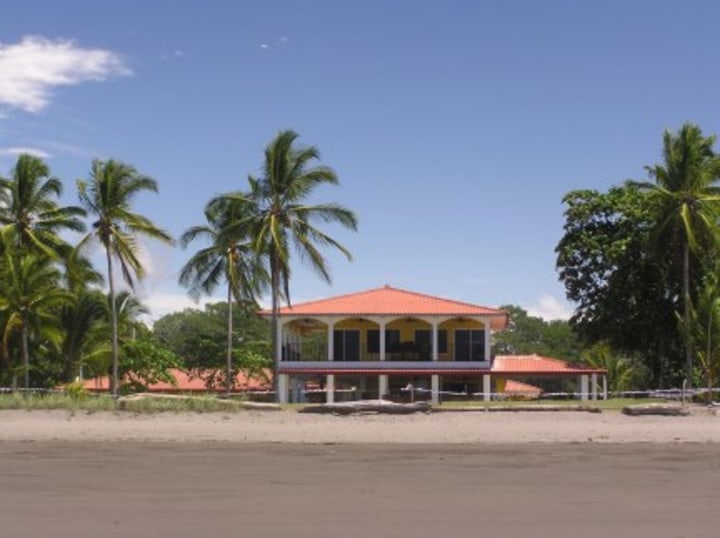
For years I had a dream of waking early and going for a stroll on a sunny,windswept tropical beach. My wife would be arm in arm with me, I would have a fresh cup of coffee in my hand and the four legged love of my life, my miniature Schnauzer, Spencer would be scurrying to and fro and having the time of his life. As the dawn broke the sky the waves would be breaking at my feet, the air would be fresh and we would have the entire beach to ourselves. If you choose the western province of Chiriqui, this can be your reality. From the mountain towns of Volcan and Chiriqui, miles of deserted beaches are less than an hour’s drive away.
Although a so-called developing country, Panama has all the modern conveniences, including high-speed Internet service. Panama City with its 800,000 people is ultra-modern and rivals any city of similar size in the U.S. Those living in Panama City and most places throughout the country have access to most of the things that are available in the U.S.
PriceSmart is here. The supermarkets are filled with products from the U.S., but some of the local products are just as good and less expensive. The two major telephone companies are familiar names: Cable & Wireless and Bell South. Plus Panama has excellent cell phone coverage.
The currency is familiar, too: the U.S. dollar. Driving is on the right hand side of the road, and you will see the same range of cars here as you would find in the U.S. or Canada; SUVs abound. I am proof that you can get along living in Panama with just English, though it will be helpful to learn Spanish as soon as you can - especially for travel off the tourist path.